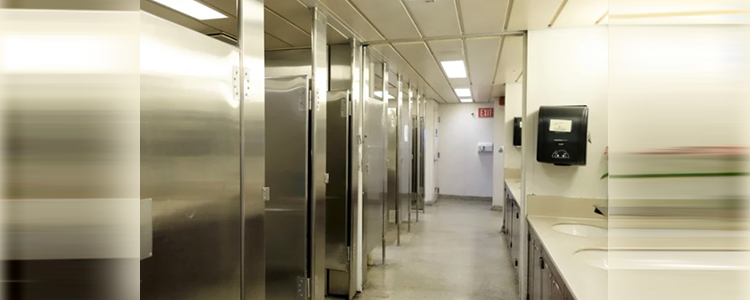By State Senator Kevin Ranker
Many of you have contacted my office regarding the I-960 vote that we took this week. I think [the following article] in the Olympian describes the situation very well, and I wanted to share this with you.
Why I-960 is unworkable in this grim reality
Published February 12, 2010
Standing between Democrats in the state Legislature and their vote to increase taxes to help close a $2.2 budget shortfall is Initiative 960, passed by voters in November 2007. That initiative, which requires a two-thirds vote in the House and Senate to raise taxes, was approved by 51.2 percent of the voters.
Senate Democrats have taken the first steps toward removing the two-thirds requirement — in effect setting the stage for a tax increase vote later in this legislative session. The simple truth is this: The bottom has fallen out of the economy since voters approved the tax-limiting initiative more than two years ago. The landscape has shifted. The state already has cut billions of dollars in state spending, and an all-cuts budget would have devastating consequences for education, health, social services and public safety in this state.
In a normal budget year, about 59 percent of the budget is off limits to Gregoire and lawmakers. More than half the budget is obligated to pay for elementary and secondary education, Medicaid, pensions and other requirements. By accepting stimulus funds, Washington state has agreed to fully fund many other programs, leaving the governor and Legislature to make the needed cuts from just 29 percent of the budget. As Gregoire says, “There’s not a lot of options.” Lawmakers must find a balance between additional budget cuts and small, targeted tax increases to balance the two-year budget.
SMART VOTERS
Voters understand that the nation is in the depths of an economic recession. Voters understand that national unemployment is pushing 10 percent, and that demands for public services are up at a time when revenue is down. Voters have watched elected officials at the state, county and city level slash spending, terminate employees and end valuable programs. That’s one of the reasons more than 57 percent of the voters rejected Initiative 1033 last fall — yet another tax-cutting measure sponsored by initiative gadfly Tim Eyman.
Voters rejected the measure, we believe, because they understand that these are tough economic times, and it’s inappropriate to tie the hands of elected officials who are trying to meet increasing calls for services while enduring repeated revenue reductions. Gov. Chris Gregoire and Democrats — who hold strong majorities in both the state House and Senate — came into the 2010 session acknowledging that tax increases might be necessary to balance the budget. They’ve also looked at closing tax loopholes. Knowing that they were unlikely to get even a handful of Republican votes to raise taxes, Democrats had no option. They were obligated to remove the I-960 provision requiring a two-thirds vote in both legislative chambers to raise taxes.
SUSPENSION, NOT REPEAL
Sen. Margarita Prentice, D-Seattle, chairwoman of the Senate Ways and Means Committee, has introduced Senate Bill 6130, which would suspend the two-thirds vote requirement through the fiscal year ending in June 2011. It’s a suspension, not a repeal, and it passed the Senate on a vote of 26-22 this week.
Senate Minority Leader Mike Hewitt, R-Walla Walla, is sharply critical of the move to suspend the two-thirds vote requirement. “I am incredulous that Democrats are setting the stage for raising taxes in this economy. People are terrified right now. Everybody knows someone who’s lost a job. Working people and employers are just trying to survive in this economy. They should not be asked to bail out poor state spending decisions through higher taxes,” Hewitt said.
Rep. Ross Hunter, D-Medina, chairman of the House Finance Committee, has the better argument when he says I-960 is unworkable: “People who voted for I-960 voted in principle for transparency, fiscal restraint and accountability,” Hunter said. “But I-960 in practice is an impenetrable roadblock to thoughtful, reasoned governing. Not only does it keep us from making sensible fixes to our tax code, the two-thirds majority requirement leads to the worst kind of politicking and vote-trading, as witnessed in national efforts to pass health care reform, or in efforts to pass a budget in California where a two-thirds majority is required.”
IN THE OPEN
Besides, Democrats aren’t attacking Initiative 960 secretly. They have been very open and honest with voters about their intent and why they are suspending the vote requirement during this economic upheaval. Democrats share the blame for this budget fiasco, because in flush times they showed no fiscal restraint. Now, they are paying for it. We don’t envy Democrats who are bracing themselves to take a tough tax vote in an election year when voters already are angry. But voters must understand that an all-cuts budget — another $2.6 billion on top of $4 billion already taken — would undermine the things that make Washington such a great place to live — solid K-12 and higher education systems, a pristine environment, emphasis on public health and safety, and a social-service safety net that protects the poor, the vulnerable and those on the margins of life. It’s that quality of life that Democrats seek to preserve and protect as they make difficult budget balancing decisions in the days and weeks ahead.
**If you are reading theOrcasonian for free, thank your fellow islanders. If you would like to support theOrcasonian CLICK HERE to set your modestly-priced, voluntary subscription. Otherwise, no worries; we’re happy to share with you.**







